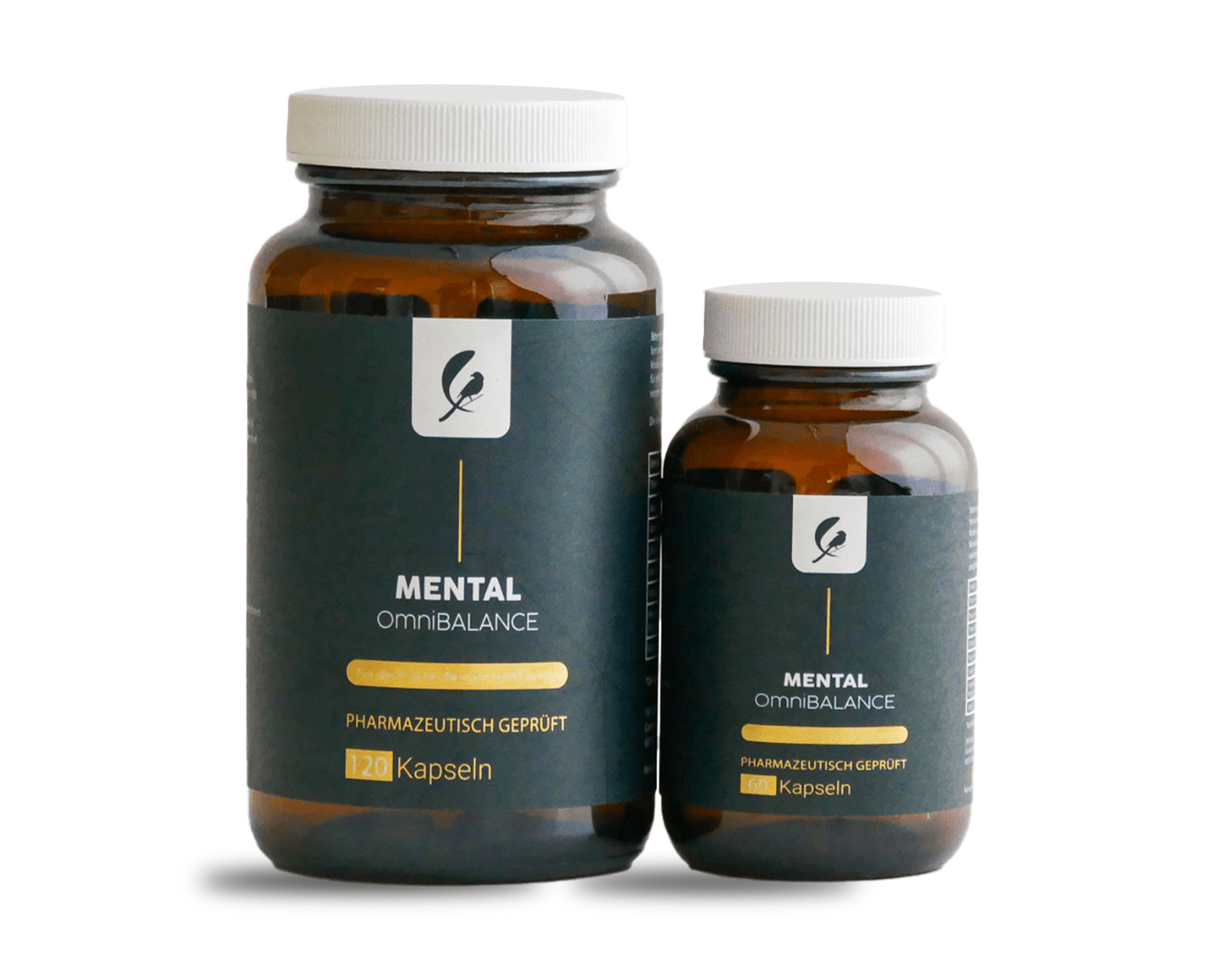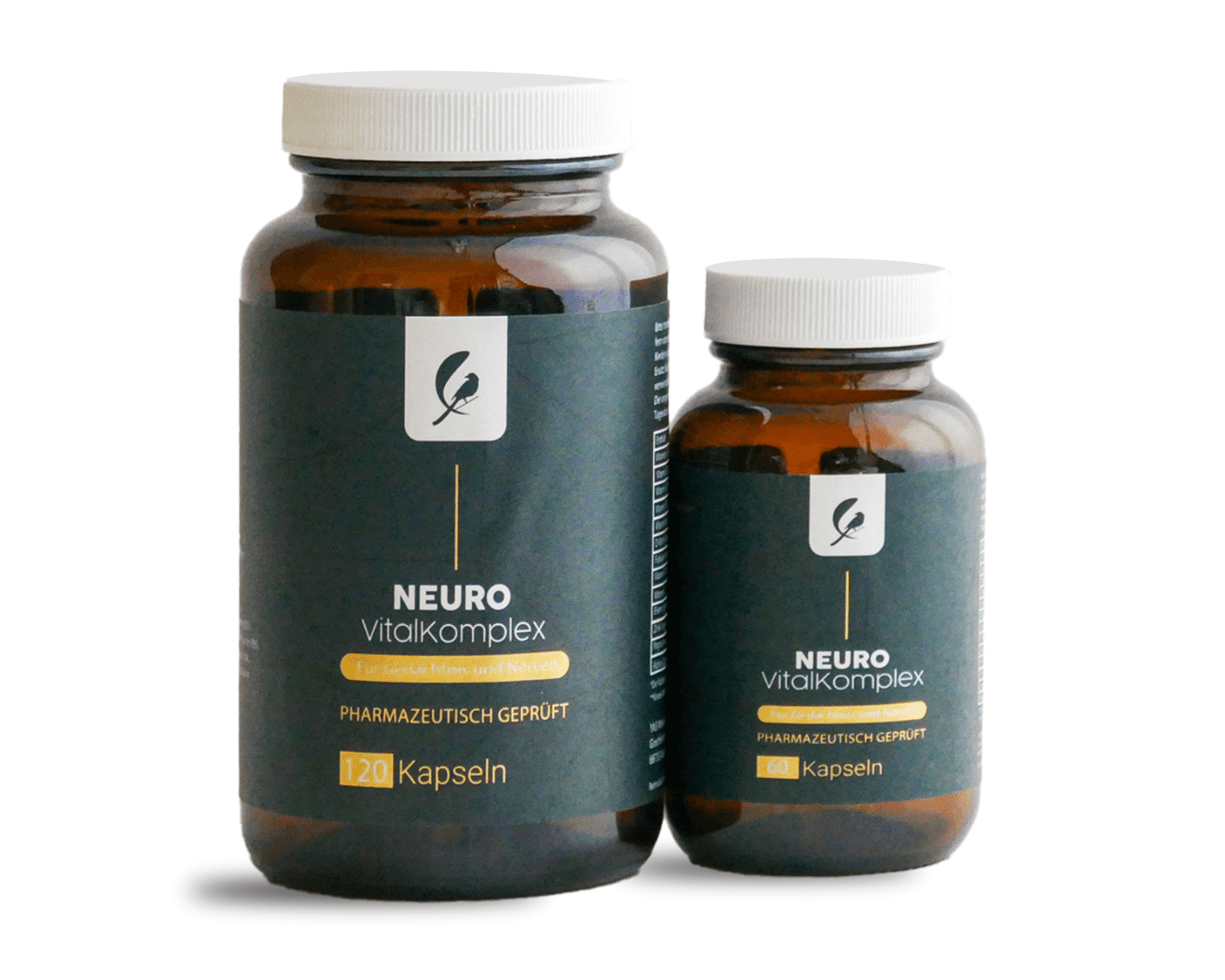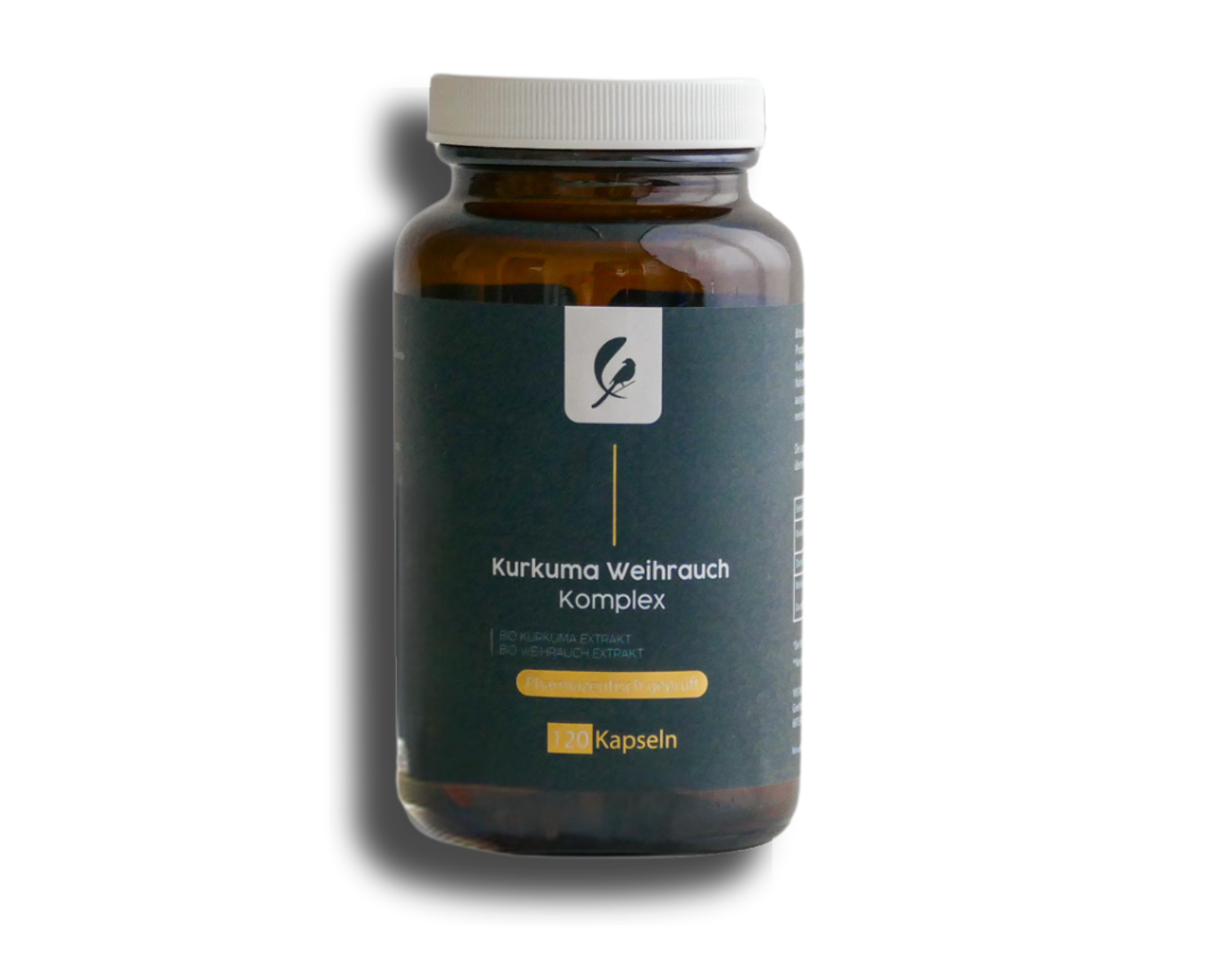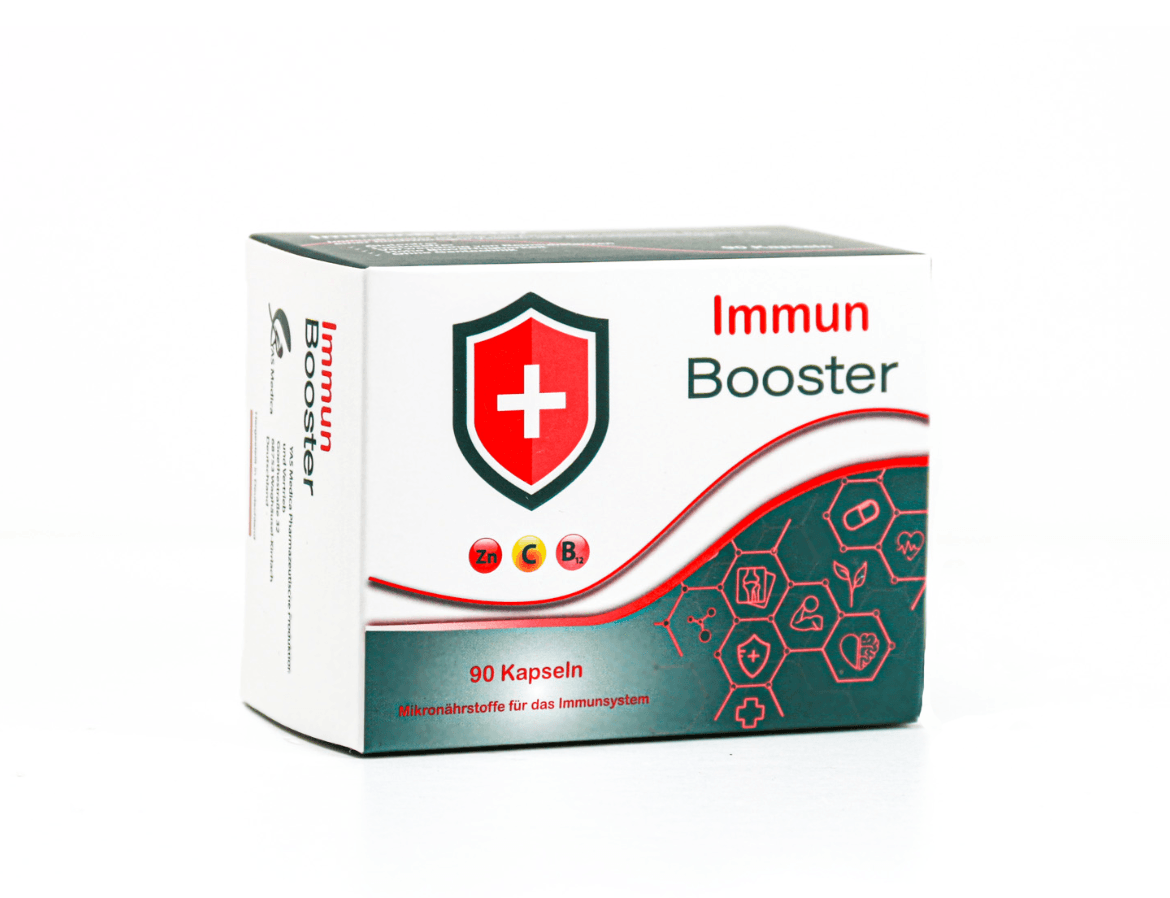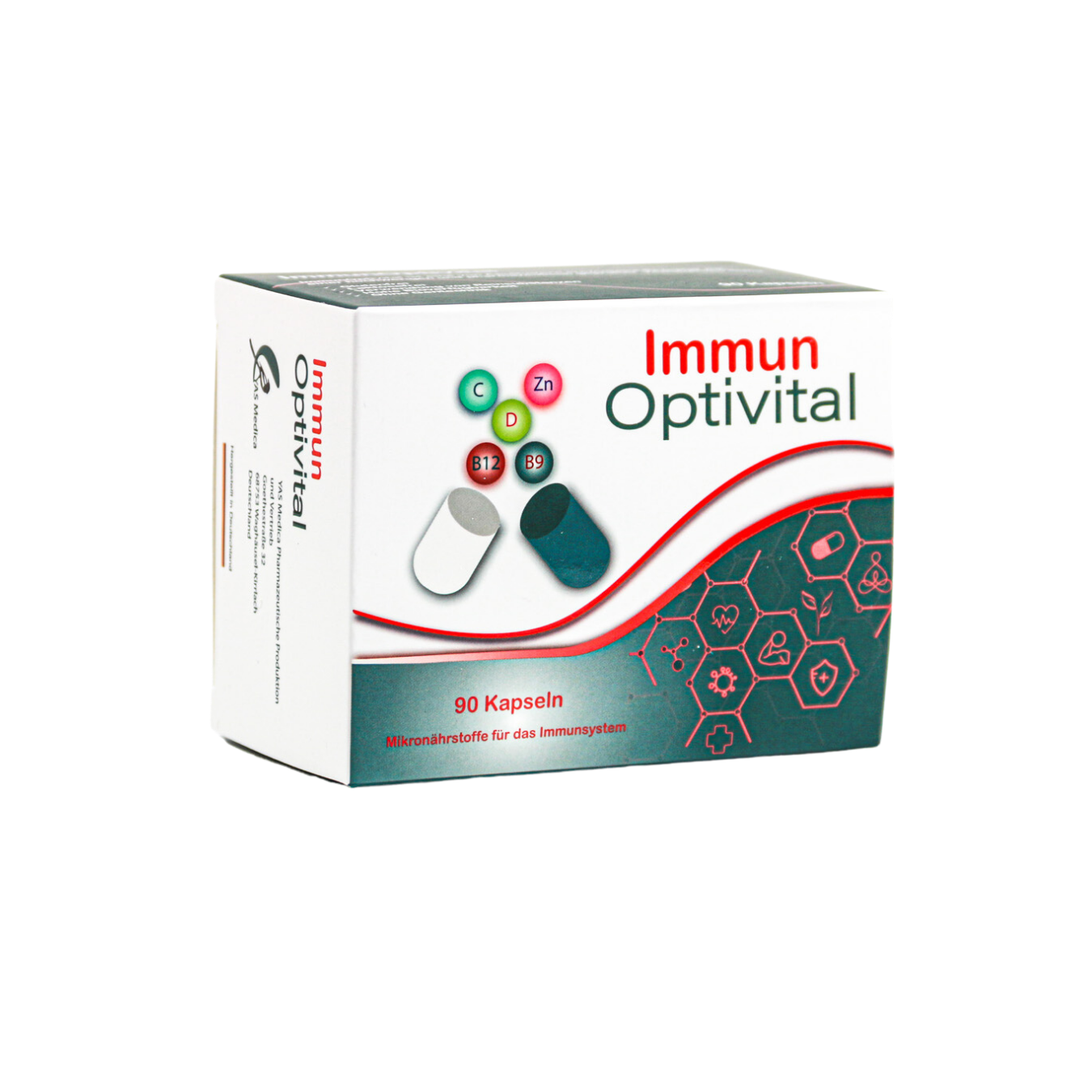Natural support for mental balance and neural health
Targeted nutritional supplement for nerves and mind
Filters
Filters
The Nervous System
- Micronutrients for concentration and memory
- Minerals and vitamins for nerves and psyche
-
Energy metabolism: Thiamine is essential for carbohydrate metabolism and helps convert glucose into energy. Since the brain primarily uses glucose as an energy source, sufficient thiamine is crucial for brain function.
-
Nerve function: It plays a key role in nerve cell function and neurotransmission. Thiamine helps maintain the myelin sheaths, which are necessary for the rapid transmission of nerve signals.
-
Synthesis of neurotransmitters: Thiamine is involved in the synthesis of acetylcholine, an important neurotransmitter necessary for memory, learning and muscle contractions.
-
Prevention of neurodegenerative diseases: Studies suggest that adequate levels of thiamine may protect against certain neurodegenerative diseases such as Alzheimer's disease.
-
Mental health: Thiamine deficiency can lead to disorders such as Wernicke-Korsakoff encephalopathy, which manifests as confusion, difficulty in coordination, and memory loss. Additionally, thiamine is important for general mood regulation and mental clarity.
-
Energy metabolism: Riboflavin is crucial for the metabolism of fats, carbohydrates and proteins, thereby supporting energy production in the body. This is particularly important for the brain, which has high energy needs.
-
Neural health: Vitamin B2 helps maintain the myelin sheaths that surround nerve fibers. These protective layers are essential for efficient signal transmission within the nervous system.
-
Reduction of oxidative stress: Riboflavin has antioxidant properties that help protect cells from oxidative stress. This is important because oxidative stress can contribute to neuronal damage and various neurodegenerative diseases.
-
Migraine prophylaxis: Studies have shown that vitamin B2 can reduce the frequency and severity of migraine attacks in some people, highlighting its importance to the nervous system.
-
Mental health: Although the direct effects of riboflavin on mental health are less researched than other B vitamins, an adequate supply of vitamin B2 contributes to overall well-being and supports cognitive function.
-
Neurotransmitter synthesis: Vitamin B6 is crucial for the synthesis of various neurotransmitters, including serotonin, dopamine, GABA (gamma-aminobutyric acid), and norepinephrine. These neurotransmitters are essential for regulating mood, sleep, concentration and stress levels.
-
Homocysteine metabolism: Pyridoxine plays a role in the metabolism of homocysteine, an amino acid that can be neurotoxic at high concentrations and increase the risk of neurodegenerative diseases.
-
Nerve protection and function: Vitamin B6 helps maintain the health and functionality of nerve cells. It supports the formation of myelin, a protective covering around nerve fibers, which is important for efficient nerve conduction.
-
Mental health: Low levels of vitamin B6 have been linked to various mental disorders, including depression and anxiety. Adequate intake of vitamin B6 can help improve mood and reduce symptoms of these diseases.
-
Cognitive functions: There is evidence that vitamin B6 supports cognitive function and may protect against age-related cognitive decline.
-
Neurological function: Vitamin B12 is essential for maintaining the health of nerve cells and myelin sheaths, which are necessary for efficient signal transmission in the nervous system. A deficiency of B12 can lead to nerve damage and neurological problems.
-
Cognitive health: There is increasing evidence that vitamin B12 is important for cognitive function. A deficiency can contribute to problems such as memory loss and cognitive decline, particularly in older adults.
-
Mood regulation: Vitamin B12 plays a role in the synthesis and metabolism of neurotransmitters that affect mood, including serotonin and dopamine. A deficiency can therefore contribute to mood swings and depression.
-
Homocysteine metabolism: Similar to vitamin B6, B12 helps regulate homocysteine levels in the body. High homocysteine levels are associated with an increased risk of neurodegenerative diseases.
-
Protection against nerve damage: Vitamin B12 has neuroprotective properties and may reduce the risk of certain neurodegenerative diseases such as Alzheimer's and Parkinson's
-
Nerve function: Magnesium is crucial for maintaining normal nerve function. It acts as a natural calcium channel blocker, meaning it helps protect nerve cells from excessive stimulation. This can help reduce nervousness, stress and anxiety.
-
Muscle relaxation: Magnesium plays an important role in muscle contraction and relaxation. It helps prevent muscle spasms and tension often associated with nervous tension and stress.
-
sleep quality: Magnesium citrate can improve sleep quality, which in turn is important for mental health and well-being. Adequate magnesium intake is often associated with deeper, more restful sleep.
-
Mood and cognitive functions: There is evidence that magnesium can have a positive impact on mood and relieve symptoms of depression and anxiety. It also supports cognitive processes such as memory and concentration.
-
Protection against neurological diseases: Magnesium may have neuroprotective properties and reduce the risk of neurodegenerative diseases such as Alzheimer's.



